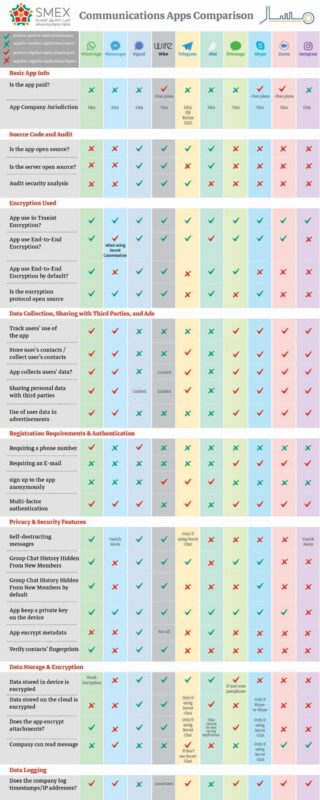A comparison between privacy and security provided by instant messaging applications
People have become increasingly reliant on instant messaging applications in their daily routine, whether for personal or business communication. This makes it crucial to pay attention to the data these applications collect about us.
Here is a comparison of the privacy and digital security features offered by some of the most used messaging apps.
SMEX and MASAAR – Technology and Law Community, are concerned with enhancing the privacy of Internet users in the Arab region. In the context of the two organizations’ efforts to provide information on how technology companies handle user data, as well as their privacy and security practices, they published this comparison, which focuses on popular apps such as: WhatsApp, Facebook Messenger, Signal, Wire Telegram, Jitsi, iMessage, Skype, Zoom and Instagram.
“Masar” and “SMEX” will regularly update the information on this page while adding more applications. It will also monitor any changes in policies or practices related to the compared applications.
The information provided in the comparison is based on a set of standards that combine laws, policies and technology. The comparison refers to the laws that govern the applications, their servers, and the companies that produce them. It also takes into consideration the development of the applications: whether it is open or closed source, the security and privacy options it provides, the use of encryption or not, in addition to the collection, storage and sharing of user data with third parties.
You can review the guide prepared by “Masar” on the privacy and security options offered by popular instant messaging software.
You can also get technical support from the “Digital Security Helpdesk” that works to enhance the safety of digital users in Lebanon and the Arabic-speaking countries by providing advice, countering digital attacks and decreasing digital threats.

